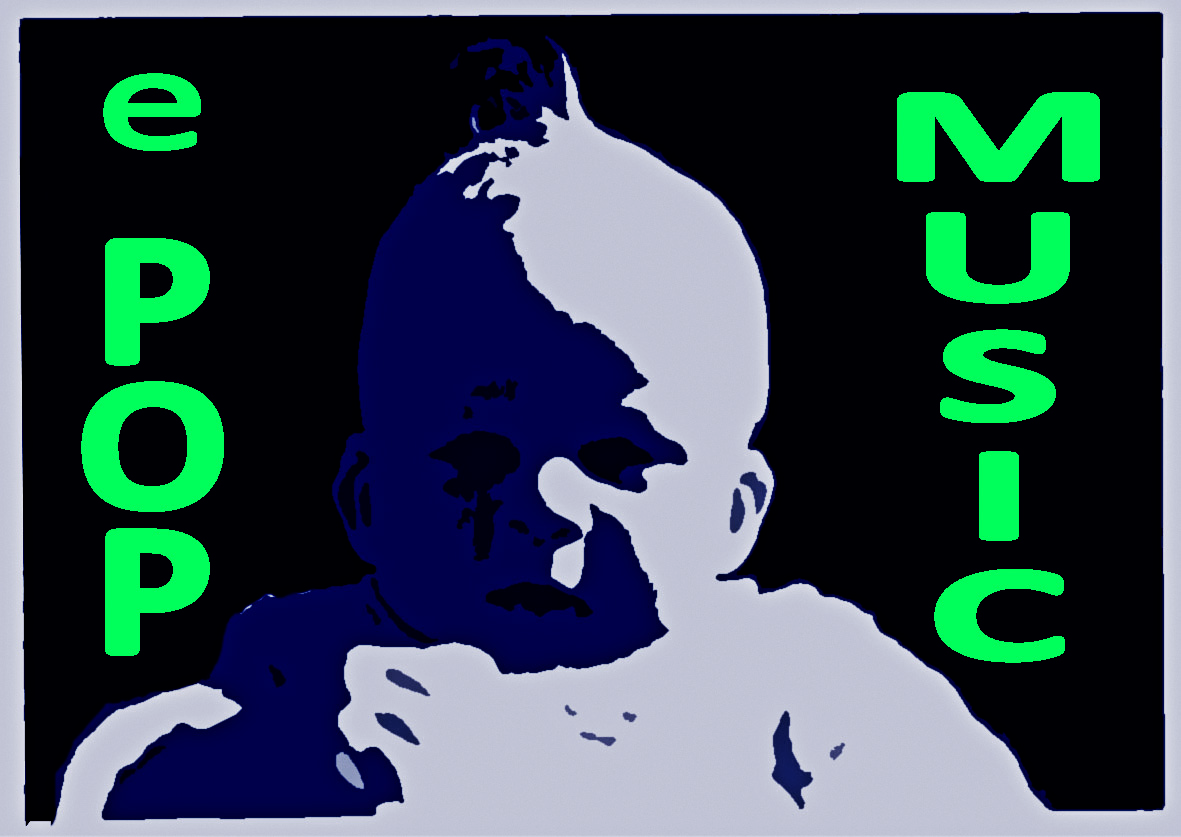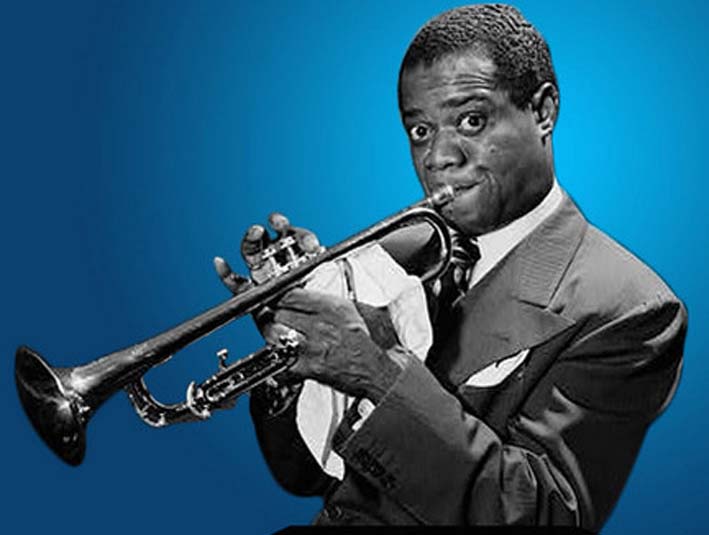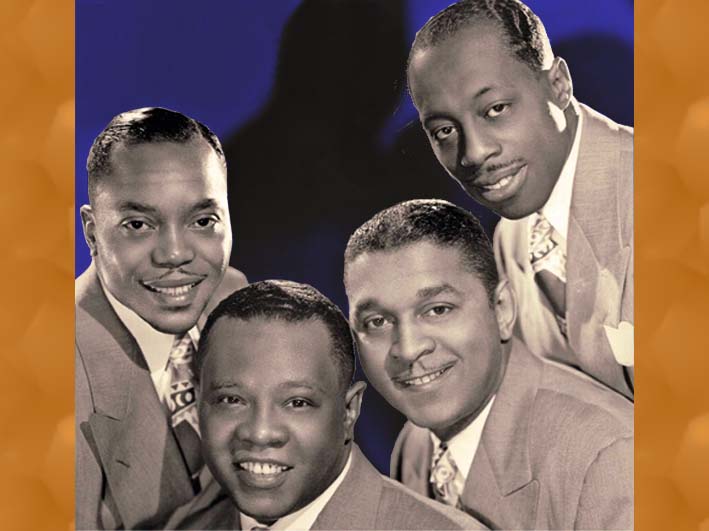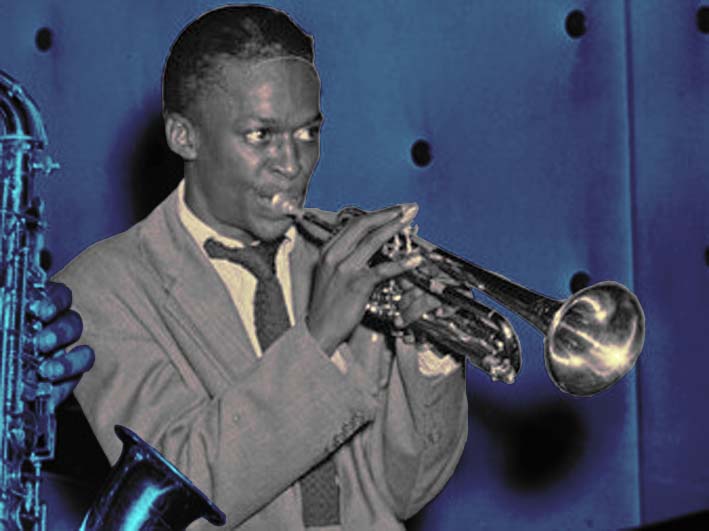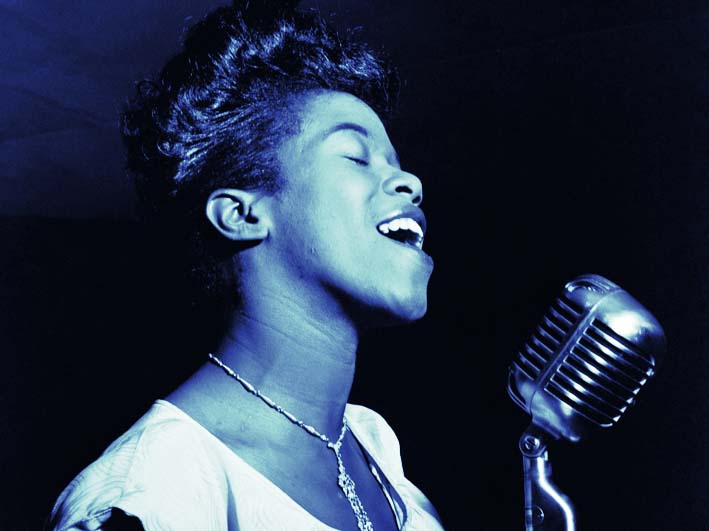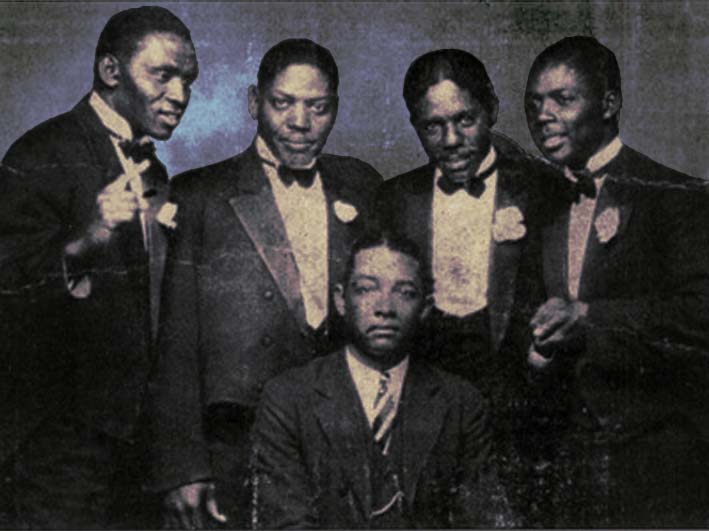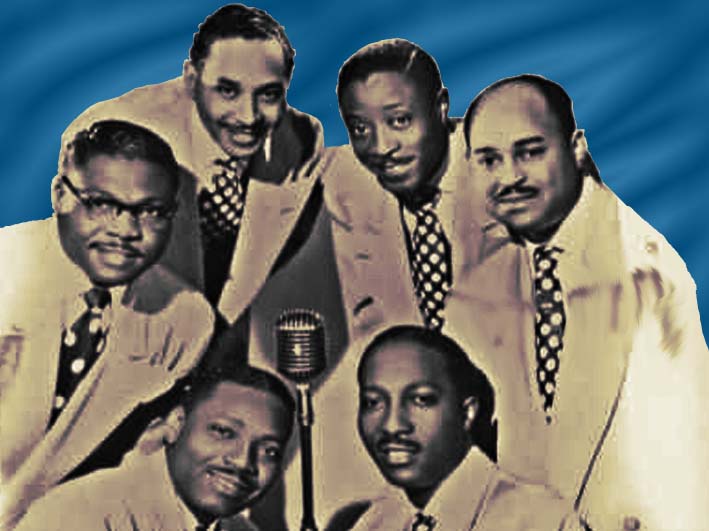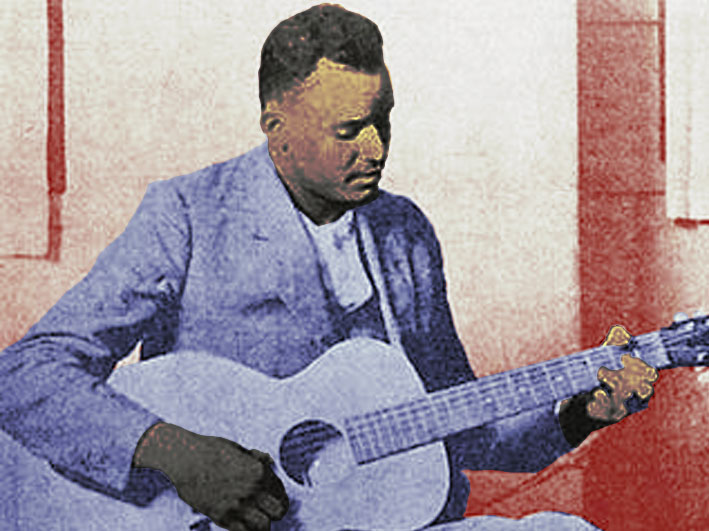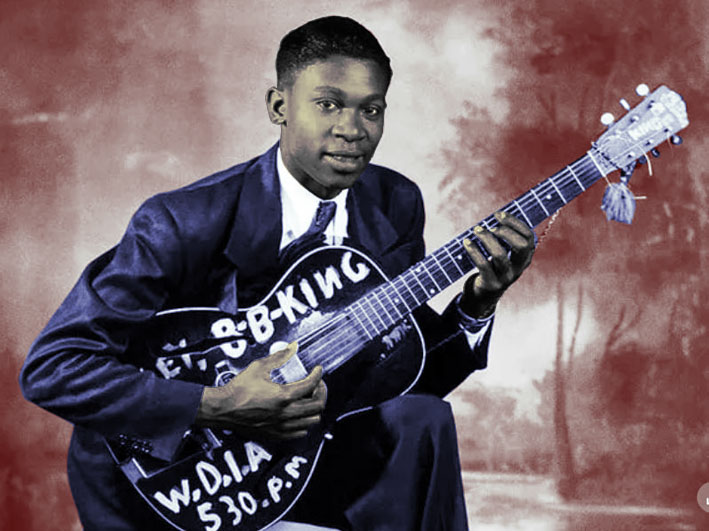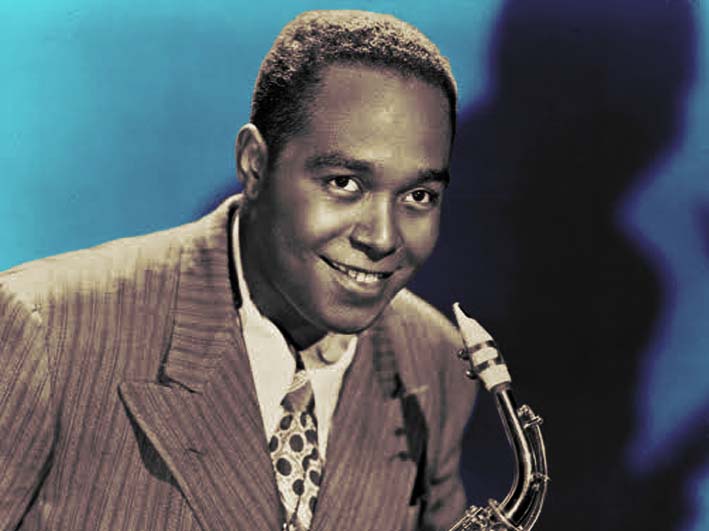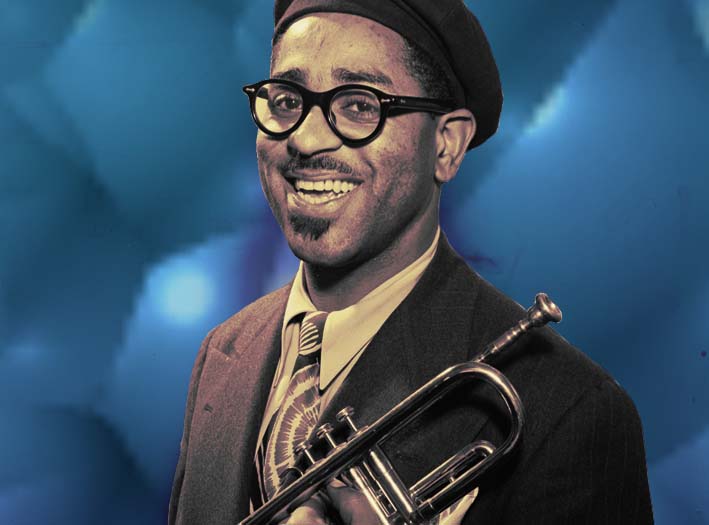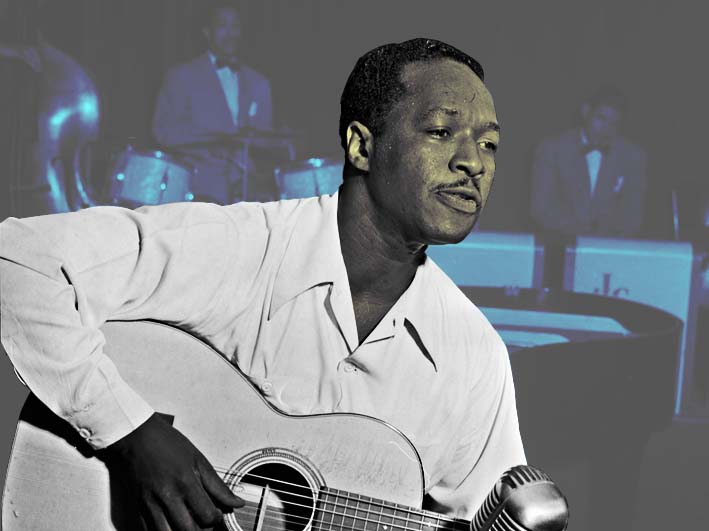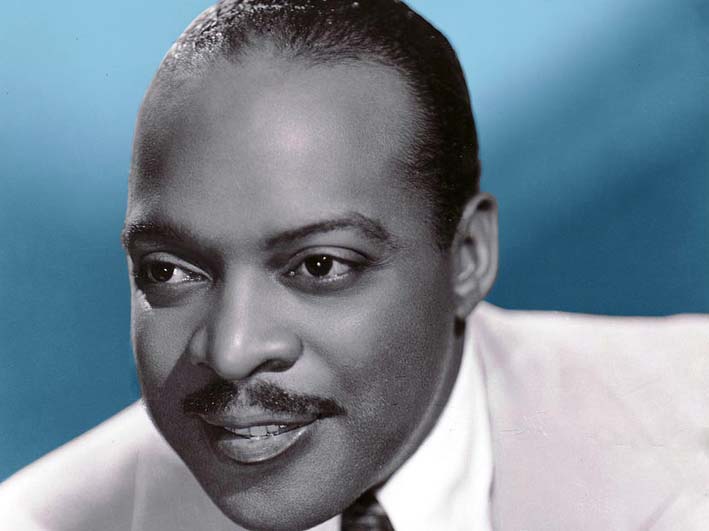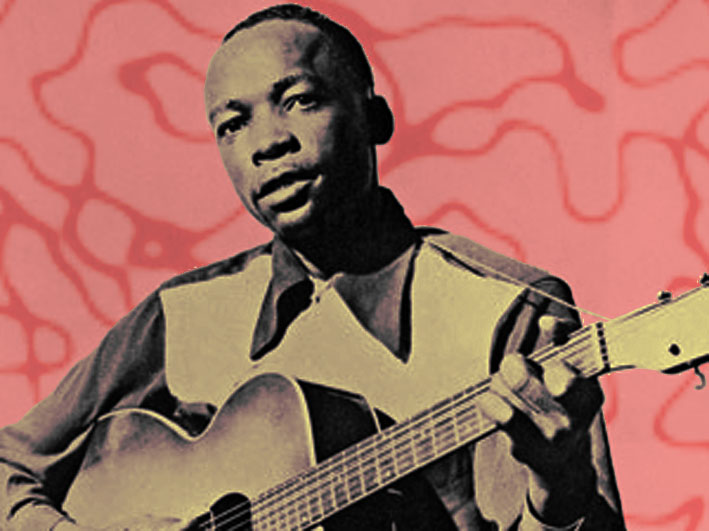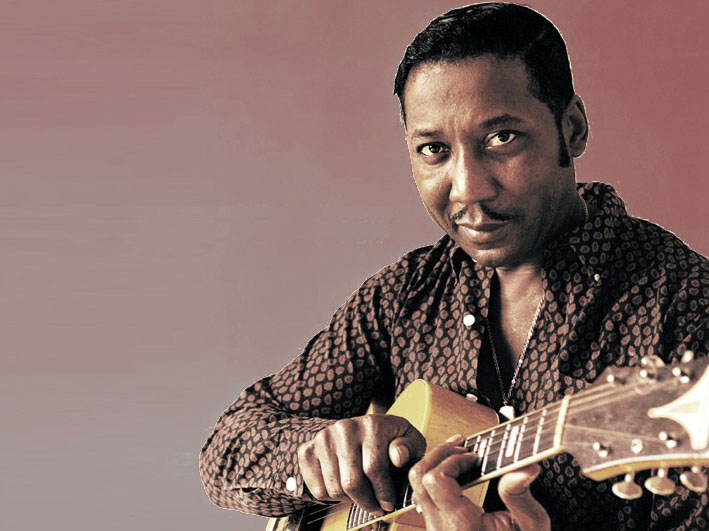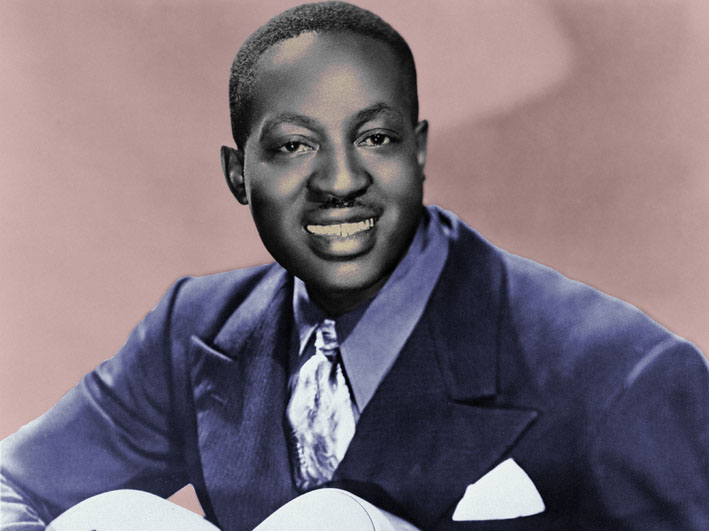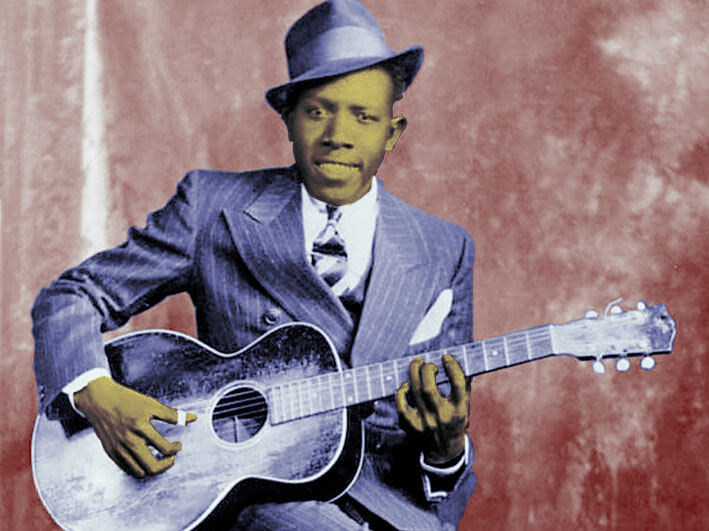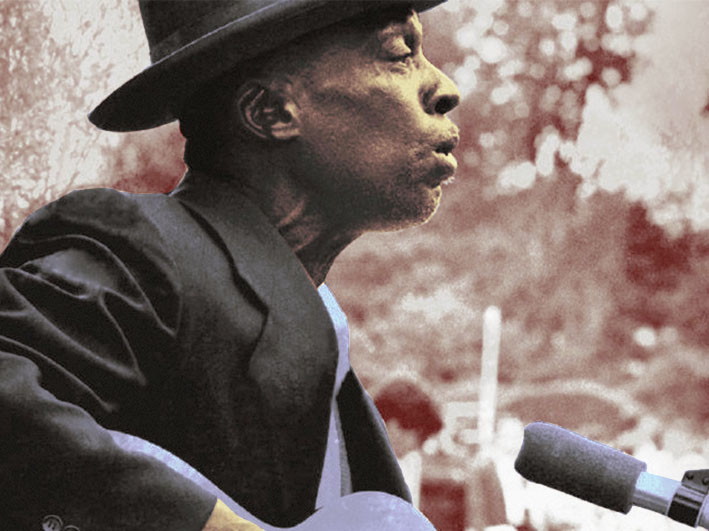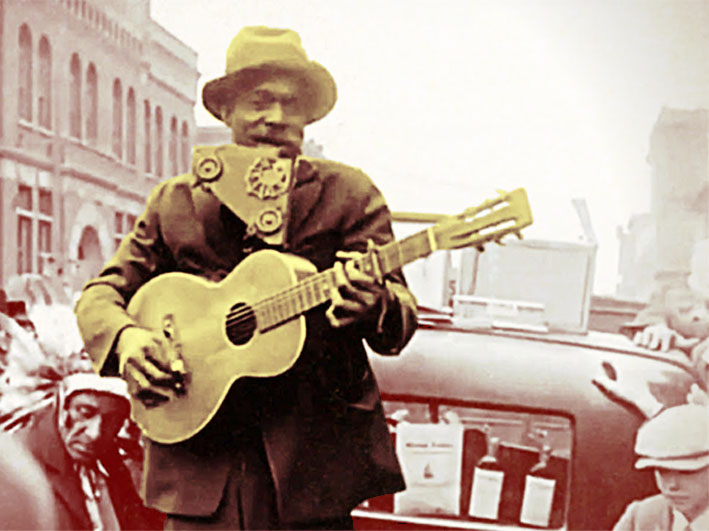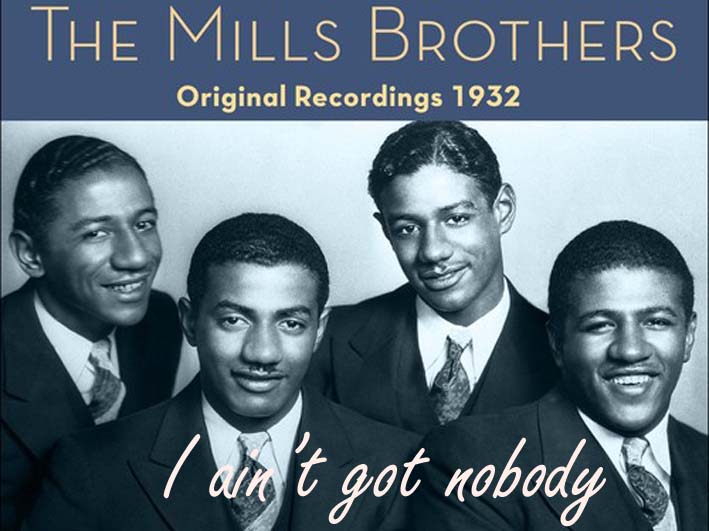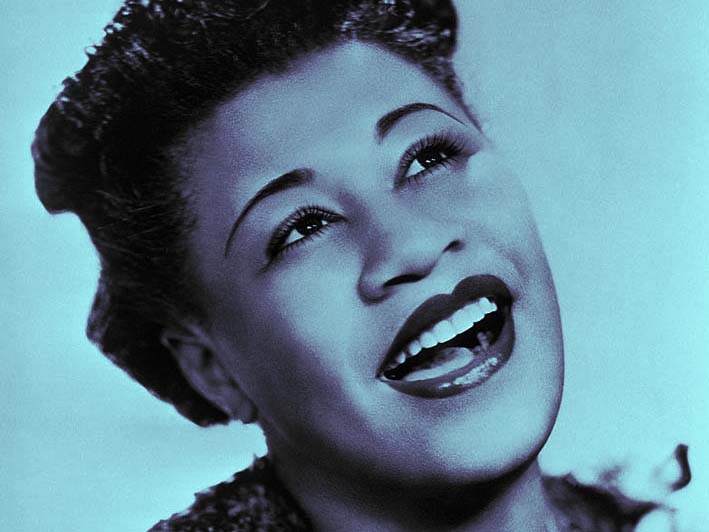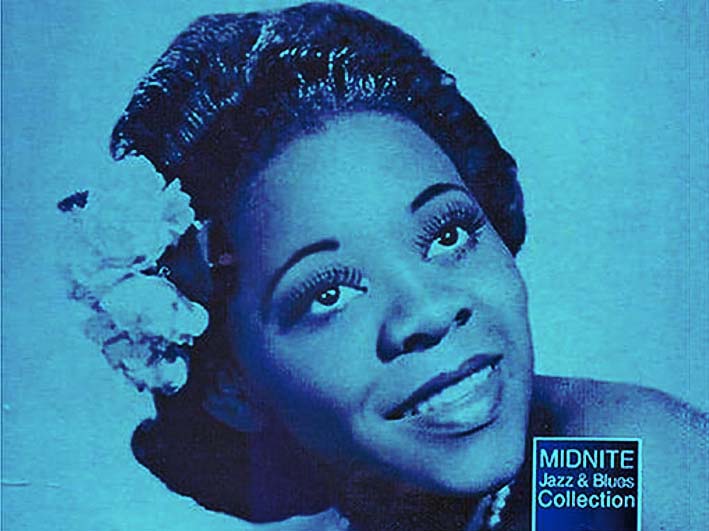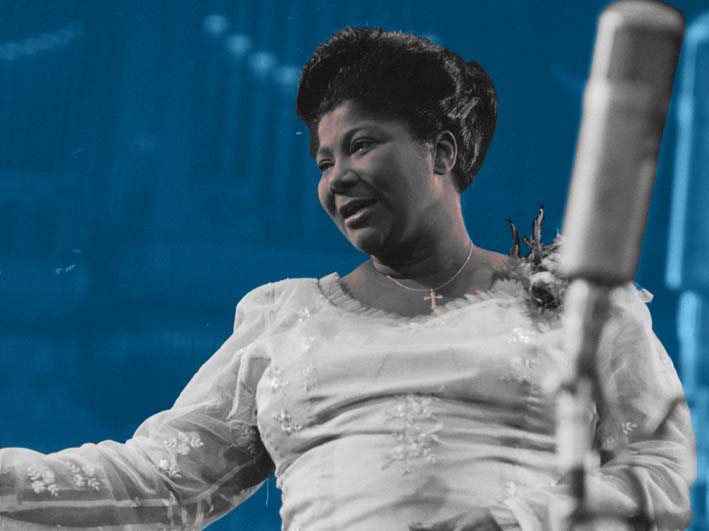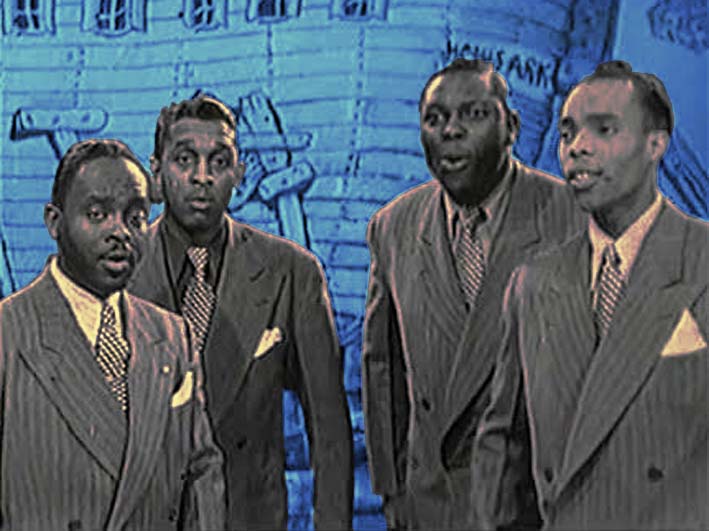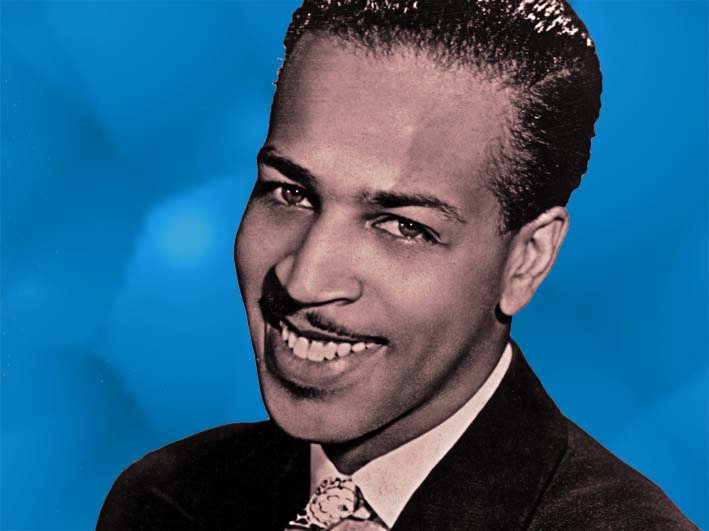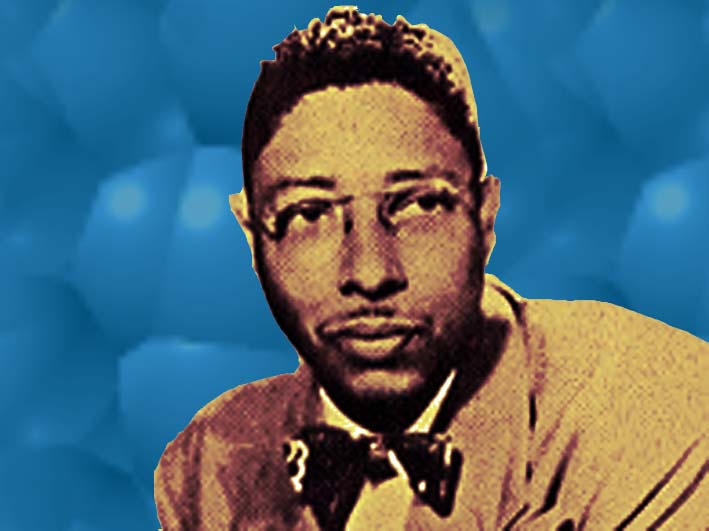RnB 1920-40s
MUSIC GENRE ∙ Folk ∙ Rock ∙ RnB SOUL ∙ Rap ∙ Pop Hits ∙ World music ∙
JOURNEY THROUGH 800 RnB SOUL SONGS
RnB SOUL ∙ 1920-40s ∙ 50s ∙ 60s ∙ 70s ∙ 80s ∙ 90s ∙ Neo Soul 2000s-2010s ∙
RAGTIME, DIXIELAND, BOOGIE-WOOGIE
RAGTIME is the genre that African-American musicians gave after the Civil War to piano music for salon, dance, marches or society events. A precursor to jazz, ragtime benefited in 1895-1910 from the emblematic success of musician-composers Ernest Hogan, Scott Joplin and James Scott, success then notably conveyed by the mechanical reproduction medium of the piano roll.
DIXIELAND JAZZ and BOOGIE WOOGIE emerged in the 1910s from Ragtime culture, as aptly illustrated by the three versions below of Artie Matthews' 1915 composition "Weary blues". With the advent of radio and recording technology, music began to be broadcast and distributed en masse in the 1920s. Dixieland and Boogie-woogie were the first genres of African-American music to compete with other contemporary instrumental styles, and Louis Armstrong and Sydney Bechet were the first musicians to let the trumpet and soprano saxophone sound the way they did.

Ragtime
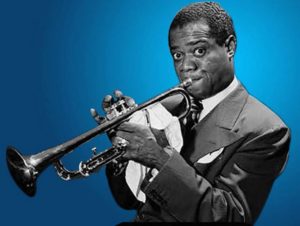
Louis Armstrong

Sydney Bechet
RAGTIME ∙ 1895 ∙ La Pasmala (Ernest Hogan) ∙ 1899/1902 ∙ Maple leaf rag / The entertainer (Scott Joplin) ∙ 1906/1909 ∙ Frog legs rag / Grace and beauty (James Scott) ∙ 1908/1915 ∙ Sensation / Ragtime nightingale (Joseph Lamb (US Irish)) ∙ 1915 ∙ Weary blues (Artie Matthews) ∙ 1923 ∙ Dizzy fingers (Zez Confrey) ∙
DIXIELAND JAZZ ∙ 1917 ∙ Livery stable blues / Tiger rag (Original Dixieland Jazz Band) ∙ Boogie rag (Wilbur Sweatman) ∙ 1919 ∙ Weary blues (Louisiana Five, orig. 1915 Artie Matthews) ∙ 1923 ∙ The Saints (Paramount Jubilee Singers) ∙ Wild cat blues / Kansas City man blues (Clarence Williams' Blue Five ft Sydney Bechet) ∙ Canal Street blues / Sweet lovin' man (King Oliver's Creole Jazz Band ft Louis Armstrong) ∙ Tin roof blues (Original Memphis Five) ∙ 1924 ∙ Everybody loves my baby (Clarence Williams' Blue Five ft Louis Armstrong) ∙ 1925 ∙ Cake walking babies from home (Red Onions Jazz Babies ft. Sydney Bechet & Louis Armstrong) ∙ 1925/1927/1928 ∙ Gut bucket blues / Hotter than that / Basin Street blues (Louis Armstrong's Hot Five) ∙
BOOGIE WOOGIE ∙ 1924 ∙ Chicago stomp (Jimmy Blythe) ∙ 1929 ∙ Pine Top's boogie woogie (Pine Top Smith) ∙ 1938 ∙ Roll 'em Pete (Joe Turner & Pete Johnson) ∙ 1939 ∙ Woo woo (Albert Ammons) ∙ How long blues (Jimmy Yancey) ∙ 1940 ∙ Honky tonk train blues (Meade 'Lux' Lewis) ∙ Boogie woogie on St Louis blues (Earl Hines) ∙ Rocco blues (Maurice Rocco) ∙ 1946 ∙ Bumble boogie (Jack Fina) ∙ 1968 ∙ Weary blues boogie-style (Claude Bolling, orig. 1915 Artie Matthews) ∙
SWING JAZZ, BIG BAND JAZZ
In the mid-1920s, the entertainment market grew and music became the preserve of big cities. Top musicians from the Southern states - including King Oliver, Louis Armstrong, Sydney Bechet and many others - emigrated to Chicago, New York, Philadelphia, Minneapolis where swing-jazz and big bands were about to enter their golden age. In the 1940s, the most famous jazz-bands included both the Afro-American artists ensembles of Louis Armstrong, Duke Ellington, Count Basie, Benny Carter, Lionel Hampton and the White-musicians bands of Artie Shaw, Benny Goodman, Glenn Miller, Lucky Millinder and Louis Prima.
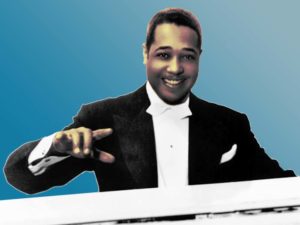
Duke Ellington
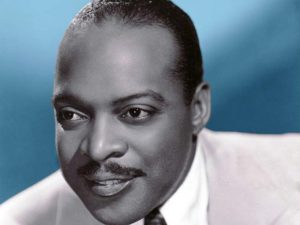
Count Basie
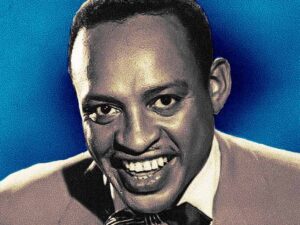
Lionel Hampton
(Black musicians jazz-bands) ∙ 1927/1930 ∙ Once in a while / Dinah (Louis Armstrong) ∙ 1927/1930/1935 ∙ Creole love call / Old man blues / In a sentimental mood / Symphony in Black (Duke Ellington) 1934 ∙ Stompin' at the Savoy (Chick Webb Orchestra) ∙ 1934/1935 ∙ Hi-de-ho / Jitterburg party (Cab Calloway) ∙ 1937/1941 ∙ One o'clock jump (ver. 1943) / Swingin' the blues (Count Basie and his Orchestra) ∙ Sunday (Benny Carter) ∙ 1942 ∙ Flying home (Lionel Hampton v.1957) ∙ 1943 ∙ Ain't misbehaving / Stormy weather / Your feet's too big (Fats Waller) ∙ 1944 ∙ Harlem on parade (Louis Armstrong) ∙ 1947 ∙ Open the door, Richard! (Hot Lips Page) ∙ 1948 ∙ Tanga (Cubop City) (Machito & The Afro-Cubans) ∙ Let it roll / I want a man (Lucky Millinder Orch. ft Anisteen Allen) ∙
(White musicians jazz-bands) ∙ 1927 ∙ Varsity drag (Abe Lyman) ∙ 1929 ∙ Putting on the Ritz (Harry Richman) ∙ 1936 ∙ St Louis blues (Ruth Etting) ∙ 1938 ∙ Begin the Beguine (Artie Shaw) ∙ 1938/1945 ∙ Potpourri / Just a gigolo (I ain't got nobody) ((Louis Prima & his Band) ∙ 1939/1944 ∙ Cherokee / Skyliner (Charles Barnet Orchestra) ∙ 1941 ∙ In the mood (Glenn Miller Orchestra) ∙ 1941/1942 ∙ Somebody else is taking my place / Why don't you do right? (Peggy Lee with Benny Goodman) ∙ 1942 ∙ Blues in the night (Dinah Shore, ver. 1949) ∙ 1946 ∙ Introspection (Ralph Burns) ∙ 1947 ∙ Sing, sing, sing (Benny Goodman) ∙ Rhumbacito (Neal Hefti) ∙
MODERN JAZZ
Modern jazz emerged in the mid-1940s with a new generation of young bebop-jazz musicians including Charlie Christian, Charlie Parker, Dizzy Gillespie, Thelonius Monk and Miles Davis. Its evolution in the next decade is known as instrumental jazz or cool jazz.
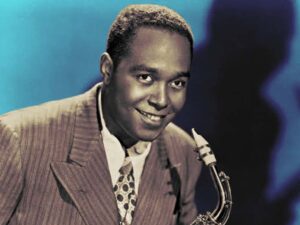
Charlie Parker
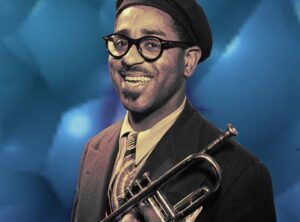
Dizzy Gillespie
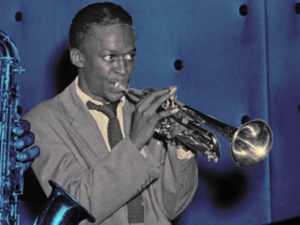
Miles Davis
∙ 1933 ∙ Tea for two (Art Tatum) ∙ 1938/1939/1940 ∙ Southern sunset / Summertime / Blues in thirds (Sidney Bechet) ∙ 1941 ∙ Swing to bop (Charlie Christian) ∙ 1942/1945 ∙ Cherokee / Now's the time (Charlie Parker) ∙ 1945/1947 D.B. blues / I want to be happy (Lester Young) ∙ At piano (Dorothy Donegan) ∙ 1946 ∙ Night in Tunisia (Dizzy Gillespie) ∙ The bloos (George Handy) ∙
∙ 1947 ∙ Round midnight (Thelonius Monk) ∙ Milestones (Miles Davis & Charlie Parker) ∙ Sophisticated lady (Willie Smith) ∙ Mingus fingers (Charlie Mingus with Lionel Hampton) ∙ Cool breeze (Dizzy Gillespie, ver. 1952) ∙ 1948 ∙ Lady bird (Tadd Dameron Sextet) ∙ Picasso (Coleman Hawkins) ∙ 1949 ∙ Cherokee (Bud Powell) ∙ Confession blues (Maxin Trio ft Ray Charles) ∙
With the advent of recording technology and radio, music began to be broadcast and mass-marketed in the mid-1920s. Vocal songs built on blues and jazz gradually became a genre in its own right in the late 1920s. Along with jazz, Vocals became one of the most important African-American musical genres and successfully competed with other contemporary styles.
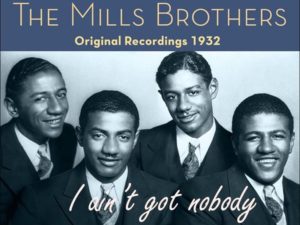
The Mills Brothers
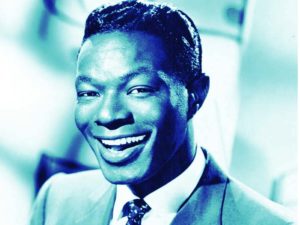
Nat King Cole
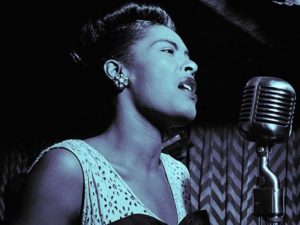
Billie Holiday
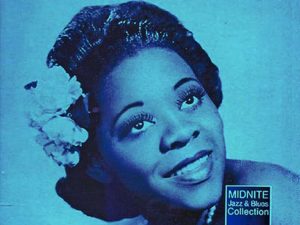
Dinah Washington
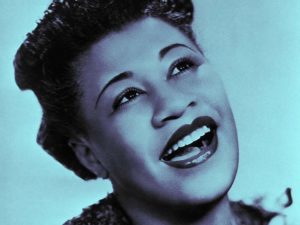
Ella Fitzgerald
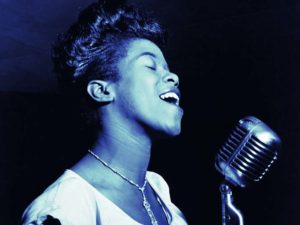
Sarah Vaughan
RAGTIME & DIXIE VOCALS ∙ 1920 ∙ Crazy blues (Mamie Smith) ∙ 1921 ∙ Jazz me blues (Lucille Hegamin) ∙ 1922 ∙ T'ain't nobody's bizness if I do / Longing for Daddy blues (Sara 'Martin (Moanin' Mama)) ∙ 1923 ∙ Down hearted blues / Gulf coast blues (Bessie Smith) ∙ Pawn shop blues (Lucille Bogan) ∙ 1924 ∙ See see rider blues (Ma Rainey) ∙ 1925 ∙ Saint Louis blues (Bessie Smith) ∙ Sweet Georgia Brown (Ethel Waters) ∙ Kitchen mecanic blues (Clara Smith) ∙ Underworld blues (Sippie Wallace) ∙ Railroad blues (Trixie Smith) ∙ 1926 ∙ Black snake blues / Black snake blues (ver. 1963) (Victoria Spivey) ∙ 1927 ∙ Gipsy glass blues (Ida Cox) ∙ Backwater blues (Bessie Smith) ∙ 1929 ∙ Am I blue? (Ethel Waters) ∙
SWING-JAZZ & JUMP-BLUES VOCALS ∙ 1927 ∙ Creole love call (Adelaide Hall with Duke Ellington) ∙ 1930 ∙ I lost my girl from Memphis (Bubber Miley) ∙ 1931 ∙ Minnie the Moocher (Cab Calloway) ∙ Little white lies/Happy feet (Noble Sissle & Band) ∙ 1932 ∙ It don't mean a thing (if it ain't got that swing) / I got it bad and that ain't good (Ivie Anderson with Duke Ellington) ∙ 1932/33 ∙ ∙ Shine / Dinah (Louis Armstrong) ∙ 1934 ∙ Tain't what you do (Jimmie Lunceford & Orch.) ∙ 1935 ∙ Mama I don't want no peas an' rice an' coconut oil (Cleo Brown) ∙ 1936 ∙ Why don't you do now ? / Gimme some of that yum-yum-yum (Harlem Hamfats) ∙ 1938/39 ∙ A-tisket a-tasket / St Louis blues (Ella Fitzgerald) ∙
∙ 1940 ∙ Let Me Off Uptown (Gene Krupa & Anita O'Day) ∙ 1941 ∙ I want a big fat mama (Lucky Millinder) ∙ 1942 ∙ A zoo suit (Dorothy Dandridge ft Paul White) ∙ Cow cow boogie (Ella Mae Morse) ∙ 1943 ∙ Jumping Jive (Cab Calloway) ∙ 1943/44/45/46/50 ∙ Is you is or is you ain't my baby? / G.I. Jive / Caldonia / Buzz me! / Blue lite boogie (Louis Jordan & the Tympany Five) ∙ 1945 ∙ Flying home (Ella Fitzgerald) ∙ 1946 ∙ Patience and fortitude (Valaida Snow) ∙ Hello Bill (Lucky Millinder) ∙ Drink hearty (Henry Red Allen) ∙ 1947 ∙ Oh! Lady be good (Ella Fitzgerald) ∙
JAZZ SONG ∙ 1936 ∙ Summertime (Billie Holiday) ∙ These foolish things (Leslie 'Hutch' Hutchinson) ∙ 1940 ∙ Sweet Lorraine (Nat King Cole Trio) ∙ 1944 ∙ Evil gal blues (Dinah Washington) ∙ Joshua fit the battle of Jericho / One meat ball (Josh White, South Carolina) ∙ 1945/46/47 ∙ Time and again / If you could see me now / Tenderly (ver. 1958) (Sarah Vaughan) ∙ 1946 ∙ The blues are brewin' (Billie Holiday & Louis Armstrong) ∙ Back door man (Vanity Smythe) ∙ 1948 ∙ Am I asking too much? (Dinah Washington) ∙ 1949 ∙ Now baby or never (Billie Holiday) ∙ Baby it's cold outside (Pearl Bailey & Hot Lips Page) ∙ So long (Ruth Brown) ∙ Everybody's somebody's fool (Jimmy Scott) ∙
SIX BLIND BLUES SONGSTERS
Like their minstrel ancestors, street singers were part of the landscape of the 1920-1930s and among them, errant blind blues singers helped spread the musical style. A few of them were recorded and broadcast including the following six:

- Blind Joe Taggart (1892-1961, Abbeville, South Carolina) ∙ 1926 ∙ I wish my Mama was on that train ∙ 1928 ∙ Scandalous and a shame ∙
- Blind Lemon Jefferson (1893-1929, Coutchman, Texas) ∙ 1927 ∙ Rising high water blues ∙ Got the blues ∙
- Blind Arthur Blake (1896-1934, Florida or Virginia) ∙ 1926 ∙ West Coast blues ∙ 1928 ∙ You're gonna quit me blues ∙ Early morning blues ∙ 1929 ∙ Georgia bound ∙
- Blind Willie Johnson (1897-1945, Brenham, Texas) ∙ 1927 ∙ Dark was the night, cold was the ground ∙ Trouble will soon be over ∙ 1928 ∙ In my time of dying / Jesus make up my dying bed ∙
- Blind Willie McTell (1898-1958, Thomson, Georgia) ∙ 1927 ∙ Stole Rider Blues ∙ 1928 ∙ Statesboro blues ∙ 1931 ∙ Broke down engine blues ∙
- Blind Boy Fuller (1907-1941, Wadesboro, North-Carolina) ∙ 1936 ∙ Get your yas yas out ∙ Truckin' my blues away ∙ 1939 ∙ I want some of your pie ∙
DELTA BLUES, DEEP SOUTH BLUES
Blues music developed in the second half of the 19th century in the region called "The Delta", the alluvial floodplain stretching from Memphis to Vicksburg between the Mississippi and the Yazoo River. By the end of the 19th century, it had spread throughout the eight states - from Texas to Florida - known as the Deep South.
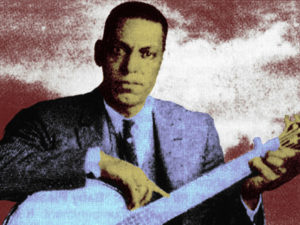
Papa Charlie Jackson, 1924
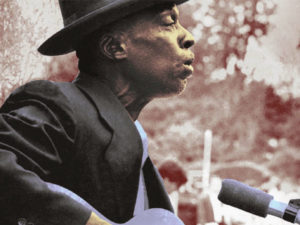
Skip James, 1931
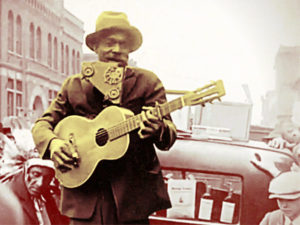
Henry Thomas, 1927

Leadbelly, 1934
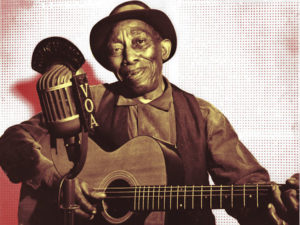
Mississippi John Hurt, 1928
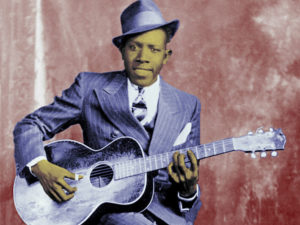
Robert Johnson, 1936-37
∙ 1924-1926 ∙ Airy man blues / Papa lawdy lawdy blues / Salty dog blues (Papa Charlie Jackson, New Orleans) ∙ 1926 ∙ Milk cow blues / Muddy water blues (Papa Freddie Spruel, Louisiana) ∙ 1927 ∙ Big Bill's blues / House rent stomp (Big Bill Broonzy, Arkansas) ∙ Corn liquor blues / Gravel camp blues (Lewis Black) ∙ Kansas City blues (part I) / (part II) / Traveling man (Jim Jackson, Mississippi) ∙
∙ 1928 ∙ Bull doze blues (Going up the country) / Fishing blues (Henry Thomas, Texas) ∙ The rising sun / Penitentiary moan blues (Texas Alexander, Texas) ∙ It's tight like that (Tampa Red & Georgia Tom, Georgia) ∙ Ain't no tellin' / Avalon blues / Frankie (Mississippi John Hurt) ∙ Canned heat blues / Big road blues (Tommy Johnson, Mississippi) ∙ Left alone blues / Trouble hearted blues (Ishman Bracey) ∙ Crow Jane blues (Julius Daniels) ∙ Hot time blues (William Harris) ∙ Take me back / Nehi Mamma blues / Downtown blues (Frank Stokes) ∙ Mistreatin' Mama (Furry Lewis) ∙
∙ 1928/31 ∙ Corinne Corrina / All around man (Bo Carter) ∙ 1929 ∙ Wichita Falls blues (T-Bone Walker, Texas) ∙ Spoonful blues / 34 blues (Charley Patton) ∙ That's no way to get along (Robert Wilkins) ∙ When the levee breaks (Kansas Joe McCoy & Memphis Minnie) ∙ 1930 ∙ Preachin' the blues (Son House, live ver. 1969) ∙ Sitting on top of the world (The Mississippi Sheiks) ∙ 1931 ∙ Hard Times Killing Floor Blues / I'm so glad / Devil got my woman (Skip James) ∙
∙ 1933 ∙ Rising sun blues (Clarence 'Tom' Ashley, Tennessee) ∙ 1934-35 ∙ Take this hammer / The midnight special / I'm out and down (Leadbelly) ∙ 1935 ∙ Baby please don't go (Big Joe Williams) ∙ 1936 ∙ Somebody changed the lock on my door / We gonna move to the outskirts of town (Casey Bill Weldon) ∙ 1938 ∙ Saturday night blues (Peetie Wheatstraw) ∙ 1941 ∙ Catfish blues (Robert Petway) ∙ 1945 ∙ Rock Island line (Leadbelly) ∙
URBAN BLUES
Urban blues developed in the late 20s in Memphis, Detroit and Chicago and later in other major American cities, first as an elaborate version of country-blues performed by duos or trios and in the mid-30s in the form of amplified jazz-infected blues performed by larger bands.
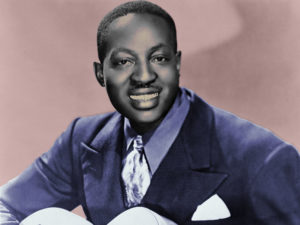
Big Bill Broonzy, 1927
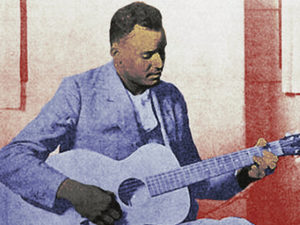
Scrapper Blackwell, 1928
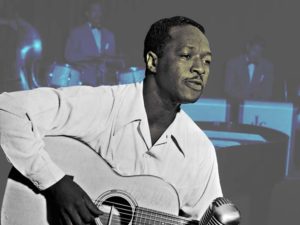
Josh White
∙ 1928 ∙ How long, how long blues / Prison bound blues (Leroy Carr & Scrapper Blackwell) ∙ 1931-32 ∙ No woman no nickel / B and O blues (Bumble Bee Slim, Georgia) ∙ 1932/34 ∙ Howling wolf blues / Stormy weather (Josh White "Pinewood Tom", South Carolina) ∙ 1935 ∙ My ol' pal blues (Scrapper Blackwell) ∙
∙ 1937 ∙ Night time is the right time (Roosevelt Sykes) ∙ 1937-38 ∙ Me and the devil blues / Love in vain blues / Cross road blues / Come on in my kitchen (Robert Johnson) ∙ 1938 ∙ Love her with a feeling (Tampa Red, Georgia) ∙ 1939 ∙ Bottle it up and go (Tommy McClennan, Mississippi) ∙
∙ 1940 ∙ District Attorney blues / Parchman farm blues (Bukka White) ∙ 1941 ∙ Big Bill's blues (Big Bill Broonzy, Arkansas) ∙ 1942 ∙ He's a jelly roll baker (Lonnie Johnson) ∙ 1946 ∙ Jelly, Jelly! (ver. 1960s) / Back water blues (Josh White, South Carolina) ∙ Ora Nelle blues (Little Walter) ∙
∙ 1946/47 ∙ That's allright Mama / Lonesome world to me (Arthur Crudup) ∙ 1946/49 ∙ Katie May / Baby please don't go (ver. 1969) (Lightnin' Hopkins, Texas) ∙ 1947/48 ∙ Gypsy woman / I can't be satisfied / I feel like going home (Muddy Waters) ∙ 1948/49 ∙ Messin' around with the blues / Blue and lonesome (Memphis Slim) ∙ 1948/49/51 ∙ Boogie chillen / Crawling king snake / I'm in the mood (John Lee Hooker) ∙
Christian music with dominant a capella vocals and choirs has been ubiquitous in the Afro-American communities since the 17th Century, and started to be called "gospel song" in the 1890s. Popular gospel music began to be recorded in the early 1930s and reached mainstream audience in the early 1940s with countless groups like 'The Famous Blue Jay Singers', 'The Heavenly Gospel Singers', 'The Golden Gate Quartet', 'The Jubalaires' , 'The Soul Stirrers', The Southern Sons', 'The Sensational Nightingles', 'The Dixie Hummingbirds', 'The Swan Silvertones', 'The Deep River Boys'.
In the late 40s, Mahalia Jackson and Sister Rosetta Tharpe became the genre’s superstars.
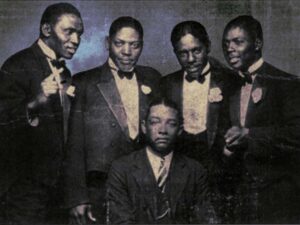
The Famous Blue Jay Singers
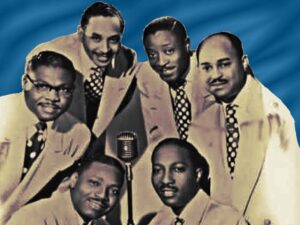
The Soul Stirrers
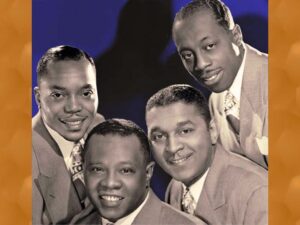
The Golden Gate Quartet
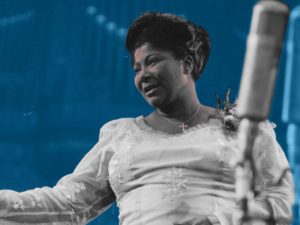
Mahalia Jackson
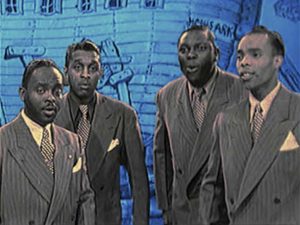
The Jubalaires

Sister Rosetta Tharpe
∙ 1932 /1947 ∙ Standing by the bedside of a neighbor / Standing on the highway / Plenty of good room (The Famous Bue Jay Singers) ∙ 1935 ∙ Dip your finger in the water (The Heavenly Gospel Singers) ∙ 1937/41 ∙ Born a thousand years ago / Gabriel blows his horn / Jezebel (Golden Gate Quartet) ∙ 1937/46 ∙ God's gonna separate the wheat from the tare / I'm gonna tell God (Mahalia Jackson) ∙ 1939/48 ∙ This train is bound for glory∙ Up above my head (ver. 1960) (Sister Rosetta Tharpe) ∙
∙ 1941/1945/1946 ∙ Preacher and the bear / Brother Bill / Noah (The Jubalaires) ∙ 1942/1944 ∙ Praise the Lord and pass the ammunition / Lord have mercy (The Southern Sons Quartet) ∙ 1946/47/49 ∙ The Lord will make a way / I'm a soldier in the army of Lord / By and by (The Soul Stirrers ft R. H. Harris) ∙ 1947 ∙ I just couldn't keep it to myself (Dixie Hummingbirds) ∙ 1948 ∙ In that upper room (Swan Silvertones) ∙ Recess in heaven (Deep River Boys) ∙
The first tracks of rock appeared in 1946-47 as outspreads from swing-jazz, boogie-woogie, jump-blues and honky-tonk country music. Upon becoming a music-genre in its own right in 1948-49, rock 'n'roll did not only revolutionize American folk and country music but also blues, popular vocals and gospel, while marking the end the era for Swing-jazz, Big band jazz and Boogie-woogie. In the following years, each of these musical genres integrated in its own way the moods, rhythms and instruments of rock music.
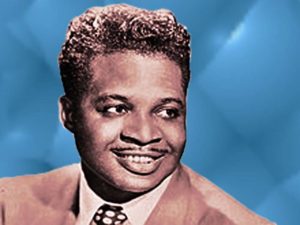
Roy Brown
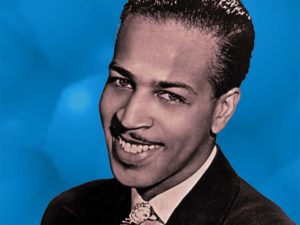
Wynonie Harris
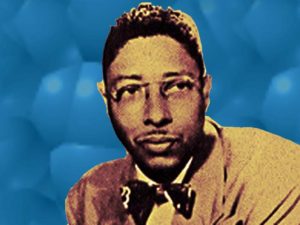
Jimmy Preston
BEFORE THE AGE OF ROCK ∙ 1929 ∙ When the levee breaks (Kansas Joe McCoy & Memphis Minnie, country-blues) ∙ 1944 ∙ I know how to do it (Lionel Hampton Sextet ft. Dinah Washington, swing-jazz) ∙ 1945 ∙ Caldonia (Louis Jordan & Tympany Five, jump blues) ∙ Strange things happening every day (Sister Rosetta Tharpe, boogie-gospel) ∙ 1946 ∙ Baby please don't go (Lightnin' Hopkins, blues) ∙ That's all right (Arthur Crudup, blues) ∙ Wynonie's blues / Hey ba-ba-re-bop (Wynonie Harris, swing & jump blues) ∙
INTO THE AGE OF ROCK ∙ 1947 ∙ Good rockin' tonight (Roy Brown, swing rock) ∙ 1948 ∙ Boogie Chillen (John Lee Hooker, blues rock) ∙ 1948/49 ∙ Lollipop Mama / All she wants to do is rock (Wynonie Harris, boogie rock) ∙ 1949 ∙ Rock the joint (Jimmy Preston, swing rock) ∙ Rock awhile (Goree Carter, swing rock) ∙ Drinkin' wine Spo-dee-o-dee (Stick McGhee, blues rock) ∙ The fat man (Fats Domino, boogie rock) ∙

